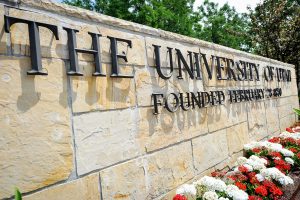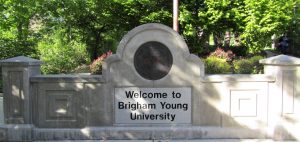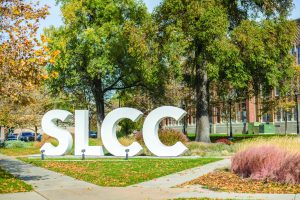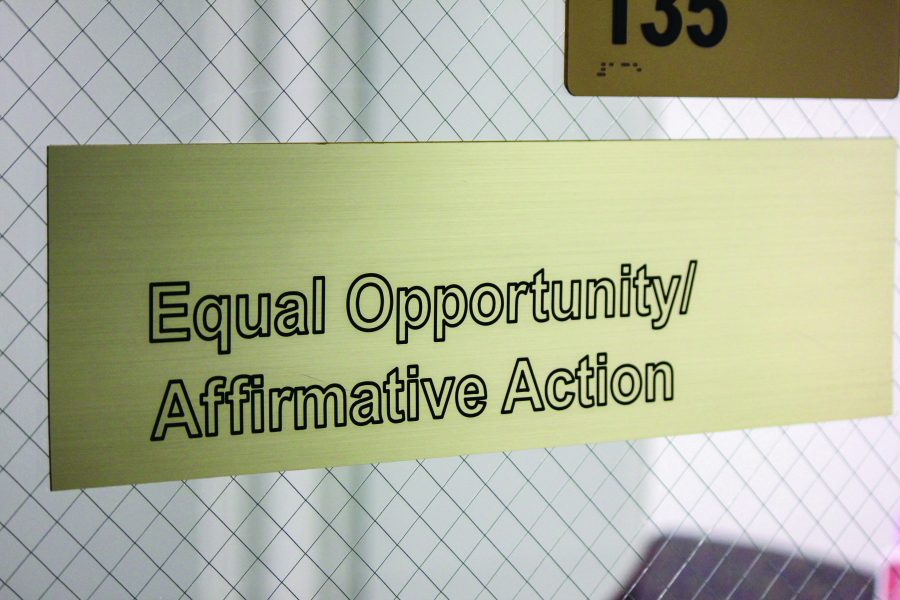University campuses make many efforts to keep their campus safe and provide resources and support for students that have been victims of sexual misconduct or assault. The University of Utah recently released the Campus Climate Survey, which showed that 19% of undergraduate students have had various experiences with sexual assault and 17% have had experiences with sexual misconduct. That number is higher for women, showing that 27% of the U’s undergraduate women have had various experiences with sexual assault and 25% have with sexual misconduct.
The majority of people who have had experiences with sexual assault or sexual misconduct typically tell a close friend, roommate or family member instead of an office equipped with the resources to help them. Universities provide these resources to anyone on campus affected by incidents of sexual assault or misconduct. Although every American institution is different, they each have similar goals regarding sexual assault.

(Photo by Adam Fondren | The Daily Utah Chronicle)
University of Utah Resources
The Director of Equal Opportunity and Affirmative Action and Title IX Coordinator at the U, Sherrie Hayashi, said, “The university has multiple resources to support students, faculty and staff.” She also mentioned the SafeU website, which “provides a centralized resource to navigate the various resources available on campus.” The U also has a Victim-Survivor Advocacy office which provides, according to their website, “Free, confidential support to those who have experienced intimate partner violence. This includes dating and domestic violence, sexual harassment, stalking, sexual assault and rape.”
The University Counseling Center provides confidential counseling services for students. There are other resources, including the Employee Assistance Program, which is similar to the University Counseling Center but provides confidential counseling for university faculty and staff.
“The Women’s Resource Center works extensively to support student victim survivors of interpersonal violence,” Hayashi said. “WRC is engaged in social justice to help end racism, sexism, homophobia and other biases that may lead to violence, intimidation and threats on our campus.”
The university also provides options of support that can include “academic adjustments, housing adjustments, no contact derivatives, safety escorts, safety planning, and other similar types of supportive measures.” The Office of Equal Opportunity and Affirmative Action (oeo@utah.edu or 801-581-8365) or the University Police Department can also be contacted in cases of sexual misconduct (801-585-COPS (2677)). Call 911 in case of emergency.
In her final statement, Hayashi said, “There are many options for individuals to address concerning behavior and we encourage students, staff and faculty to reach out to the various resources to learn about options for support and addressing sexual misconduct.”

Brigham Young University Resources
Brigham Young University in Provo has similar resources for victims of sexual misconduct or sexual assault. Tiffany Turley, the Title IX Coordinator at BYU, shared some of the resources the university provides, which include “mental health counseling, physical health services, options and available assistance for requesting changes to academic, living, transportation and working situations, protective measures available through university police or other local police departments, community legal assistance, financial aid and other matters through the registrar’s office and investigative options available through the Title IX Office, including possible sanctions or protective measures the university may impose following a final determination of a disciplinary procedure.”
She also mentioned their sexual assault survivor-advocate, Lisa Leavitt, and emphasized that she is a great resource that victims can utilize. “She is also a confidential source, so anything a victim shares with her is not shared with our office, the conduct office or anyone else,” Turley said. “We also have other confidential resources on campus for victims, including our Women’s Services & Resources Office, our Student Health Center, Counseling & Psychological Services and the University Accessibility Center.” BYU has made some changes to their policy recently “regarding how we respond to and investigate sexual misconduct.”
The changes are based on best practices, campus climate surveys and experience. Their policy can be accessed online. “Our investigative process is pretty standard — a report is made, our investigator talks to both parties, evidence and witnesses can be presented by the parties and a finding is made based on the preponderance of the evidence standard,” Turley said. “We’ve also made some changes to our disciplinary procedures, including having the Title IX Office oversee the discipline phase of the investigation in conjunction with our conduct office, and ensuring that amnesty, confidentiality and leniency are in place for victims and witnesses.” The resources are there for students to utilize.

(Photo by Curtis Lin | The Daily Utah Chronicle)
Salt Lake Community College Resources
Ken Stonebrook, J.D., dean of students and assistant vice president as well as Title IX coordinator at Salt Lake Community College, discussed the resources that they have available for victims. “In terms of resources that we have available, for all of our students, but also for students who may be victims of some sort of sexual misconduct we heavily rely on the services made available through our Center for Health and Counseling.”
The center has three locations at their main campuses — Jordan, South City and Redwood. There, he said, “Our students have access to licensed mental health providers, medical services, so if for whatever reason students needed to receive an STI test or some other medical-related need as a result of sexual misconduct they can get those taken care of in our Center for Health and Counseling.” In addition to that, SLCC offers, “massage therapy services which have been historically utilized by some survivors of sexual misconduct as a method of coping with what has gone on and to relieve some stress associated with the anxiety and things surrounding their incident.”
“We also, with the understanding that we look a little bit different than some of the other institutions in the valley and don’t have residence halls and students that are on campus 24/7, refer students to the Safe UT app,” Stonebrook said. They also partner with and refer students to community resources if needed such as the Rape Recovery Center or the Family Justice Center to “get students connected to the right community resources to make sure they have what they need outside of our school.” They are also working to identify the areas where students don’t have the information that they need such as what offices to contact and who the Title IX coordinator is and make sure they know about the resources available to them.
Student Perception
Even with all the resources available to students, peer pressure and student perception can make a difference in reporting incidents. Kalyn Dewey, a junior studying special education, has attended three schools in Utah — the U, BYU and Utah State. When asked about the differences in perception she saw in the culture of the schools, she said, “BYU has a lot of sugar-coated nothing. I never felt comfortable telling them anything … I was mildly assaulted when I was there and I wouldn’t say anything because then I would get in trouble. Also, it wouldn’t have been a big enough deal for the cops and the person didn’t attend BYU. That was a personal choice, but I never felt like I could go tell a counselor because I felt like they would judge me.”
Dewey continued by talking about the U. “I feel like when I started, [sexual assault] was always briefly mentioned, but through the years it’s been a bigger and bigger deal … if it were me, I would not really feel comfortable telling anyone here because of the way they tell everyone everything, but it is definitely not the same as BYU.”
A former student who preferred not to be named mentioned that she reported an incident to the U and didn’t feel that enough was done about it. Another student who also preferred to be kept anonymous mentioned that after telling her story multiple times to BYU resources that she was dismissed and that nothing was done.
Effort of Campuses to Make a Difference
Although perception from students is important, it may not be accurate to the effort that the offices are making to help individuals who have experienced sexual misconduct or assault. Turley of BYU said, “Regarding reporting, we have worked hard to increase our reporting numbers. We have also conducted over 250 trainings over the past two years to ensure that all faculty and staff are aware of their reporting requirements and available reporting methods, as well as helping students know how they can make a report as well. As a result, we’ve seen an increase of 400% in our reporting numbers from the 2016-17 school year to the 2017-18 school year, so we feel like our efforts are making a difference. Nonetheless, we are constantly evaluating our reporting methods and requirements, as well as our investigative process to ensure everything is as effective as possible.”
Stonebrook of SLCC said, “I hope that all students, whether they’re [from the] University of Utah or Salt Lake Community College or any of the other schools in the valley, feel supported and that they know that we as institutions not only care about them, but are required to provide those support measures and resources. I would hope that students feel that and know that we are concerned about their well-being.”
No two people are alike. Turley said, “With every victim, our goal is to do what makes sense for them in their specific situation and provide whatever resource(s) will help them individually on the path to healing, so in each case it looks different. We will do whatever we can to help though, whether it be with campus resources or community resources, and we work really hard to ensure that victims have the help they need or at least know how to access it.”
The University of Utah is looking to improve its sexual assault website and campus climate in general through SafeU. If you have feedback, visit their website to respond to their prompts.
Outside of the universities, Utah offers multiple hotlines, centers and counseling to students and community members alike. For more information on the Rape and Sexual Assault Crisis Line (1-888-421-1100) and other services, click here.


